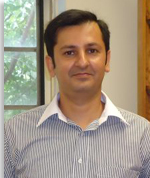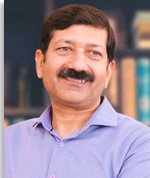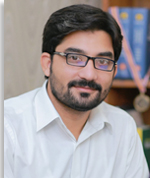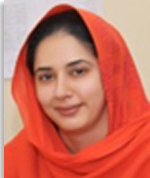Institute of Social & Cultural Studies
Vision, Mission Statement and Goals
Teaching Faculty
Programs BS (4-Years) Sociology (Morning) BS (4-Years) Sociology (Morning)
 BS (4-Years) Sociology (Replica) BS (4-Years) Sociology (Replica)
 BS (4-Years) Demography (Morning) BS (4-Years) Demography (Morning)
 BS (4-Years) Demography (Replica) BS (4-Years) Demography (Replica)
 BS (4-Years) Criminology (Morning) BS (4-Years) Criminology (Morning)
 BS (4-Years) Criminology (Replica) BS (4-Years) Criminology (Replica)
 BS Sociology 5th Semester (ADP) (Morning) BS Sociology 5th Semester (ADP) (Morning)
 BS Sociology 5th Semester (ADP) (Replica) BS Sociology 5th Semester (ADP) (Replica)
 BS Criminology & Security Studies 5th Semester (ADP) (Evening Program) BS Criminology & Security Studies 5th Semester (ADP) (Evening Program)
 M.Phil Sociology (Morning / Replica) M.Phil Sociology (Morning / Replica)
 M.Phil Education Policy & Development (Morning / Replica) M.Phil Education Policy & Development (Morning / Replica)
 Ph.D. Sociology (Morning / Replica) Ph.D. Sociology (Morning / Replica)
Publications/ Research / BooksLast Three Year Articles Year: 2015 1- Zakar, Rubeena Zakar, MZ, Abbas, Safdar,; Deomestic Violence agaisnt rural women in pakistan: an issue of health and human rights, Journal of family violence, , 2015 2- Rizvi, S., Zakar, M.Z., Rubeena Zakar,; Factors associated with low birth wegiht of children among employed mothers in pakistan, Maternal and child health journal, , 2015 3- Zakar, Rubeena Zakar, Aqil, N., Nasrullah, M.,; Paternal factors associated with neonatal mortaility and birhts with low weight: Evidence from Pakistan demographic and health survey, Maternal and child health journal, , 2015 4- Rizvi, S., Rubeena Zakar, Fischer, F., Zakar, M.Z.,; Ethical conflicts during clinical training: the hidden curricula learning experience of pakistani nurses, BMC medical ethics 16:16, , 2015 5- Zakar, M.Z., Rubeena, Zakar, Aqil, N., Qureshi, Shazia Saleem, N. Imran S.,; Nobody likes a person whose body is covered with mud: Health Hazards faced by child laborers in the brick klin sector of the Okara district Pakistan, Canadian journal of behavioral sciences, , 2015 6- Jalil, A., Zakar, Rubeena, Zakar, M.Z.,; A secondary analysis of maternal factors determine low birth weight in pakistan, Iranian Journal of public health, , 2015 7- Jackson, J. Asif, M., Bradford, B., Zakar, M.Z.,; Corruption and police legitimacy in Lahore, Pakistan, British Journal of criminology, , 2015 8- Khalil Ahmad, Ayesha Farooq, Ashraf Kayani,; Marriage & Family structures in rural punjab: a study from comparative to contemporary pattern, International journal of sociology & Social policy, , 2015 9- Khalil Ahmad, Tehmina Sattar & Syeda Mehnaz Hassan,; Role of human resource practices in employee performance & Jobs satisfaction with initating effect of employee employemnt, Pakistan econimic & social review, , 2015 10- Sameen Masood, Muhammad Ali Jibran, Aisha Ahmed,; Micro insurance & education, how to make it success, Science International, , 2015 11- Sameen Masood, Muhammad Ali Jibran, Aisha Ahmed,; Micro finance Disasters: Islamic micro finance new paradigm to serve the unnerved, Journal of applied environmental and biological sciences, , 2015 12- Kraemer MU, Perkins TA, Cummings DA, Zakar Rubeena Hay SI, Smith DL, Reiner RC Jr.,; Big, City, small world; density, contact rates, and transmission of dengue across Pakistan, J R Soc interface, 12, 2015 13- Nasrullah, M, Zakar, R., Zakar, MZ., Abbas, S., Safdar, R,; Circumstances leading to intimate partner violence agisnt women married as children; a qualitative study in urban slums of Lahore, Pakistan, BMC International Halth and human Rights, 2015, 15, 2015 Year: 2014 1- Syeda Mahnaz Hassan and Khalil Ahmad,; Globalization: Feminization of Poverty and need for Gender Responsive Social Protection in Pakistan, Pakistan Vision, Vol. 15 No.2, , 2014 2- M.A. Haq, S.M. Hassan and K. Ahmad,; community participation and sustainability of water supply program in district faisalabad, pakistan, Journal of Quality and Technology Management, Volume X, Issue II, Page 153 – 165, 2014 3- Riffat Munawar, Inam ul Haq, Vaqas Ali, Asma Younsa,; Religious knowledge women empowerment, Al-Admin, 29, 2014 4- Riffat Munawar, Inam ul Haq, Muhammad Asad, Shahzaib Ali and Hafsah Maqsood,; Incidence, nature and impacts of cyber bullying on the social life of university students, World applied sciences journal, Vol. 30 No.7, 2014 5- Rubeena Zakar, Muhammad Zakria, Zakar Nauman Aqil,; Adverse birth outcomes associated with consanguineous marriage in Pakistan, International journal of Gynecology and Obstetrics, 127, 2014 6- Khalil Ahmad, Ashraf Kayani and Karim Sajjad,; Socio-economic status and domestic violence: A study on married women, A research journal of south asian study, Vol. 29 No.1, 2014 7- Fauzia Saleem Alvi, Muhammad Hafeez, Riffiat Munawar,; Consumer Culture: An alalysis in socio cultural and political frame, A research journal of south asian study, Vol. 29 No. 1, 2014 8- Sidiaq Bugvi, Rahala Rahat, Rubeena Zakir, Muhammad Zakria Zakar, Florian Fischer, Muazzam Nasulah and Riffat Munawar,; Factors associated with non utilization of child immunization in Pakistan: Evidence from the demographic and health survey, BMC Public health, Vol. 14 No /s232, 2014 9- Sara Rizvi Jafferi, Rubeena Zakar, Muhammad Zakria,; Gender Segregation as a benefits for female nurses: A qualitative study from Pakistan, Journal of nursing management, , 2014 10- Rubeena Zakari, Muhammad Zakria, Shazia Qureshi and Florian Fischer,; Harnessing information technology to improve women's health information, MBC women's health 2014, 14, 2014 11- Muazzam Nasrullah,Rubeena Zakar, Muhammad Zakria, Safdar Abbasm Rabia Safdar, Mahwish Shaukar and Alexander Kramer,; Knowledge and attitude towards child marriage practice among women married as children: a qualitative study in urban slums of Lahore, BMC women's health 2014, 14, 2014 12- Zakar Muhammad Zakria, Rubeena Zakar, Nauman Aqil, Shazia Qureshi, Noshina Saleem, Sajjad Imran,; Nobody likes a person whose body is covered with mud: health hazards faced by child laborers in the brick kiln sector of the Okara, Canadian journal of behavioral science, , 2014 13- Ayesha Bugvi, Rhala Rahat, Rubeena Zakar, Muhammad Zakria Zakar, Florian Fischer, Muazzam Nasrullah, Riffat Munawar,; Factors associated with non utilization of child immunization in Pakistan: Evidence from the demographic and health survey, MBC public health, 14, 2014 14- Muazzam Nasrullah, Rubeena Zakar, Muhammad Zakria, and Alexander Kramer,; Girl child marriage and its associations with morbidity and mortality of children under five in a nationally, representative sample of Pakistan, Journal of pediatrics, 164(3), 2014 15- Rubeena Zakar, Shazia Qureshi, Muhammad Zakria, Zakar, Muhammad Ashraf, Nauman Aqil Safdar Abbas, Saeed Watto,; Caught in the crossfire: Aggression and violence against doctor in Pakistan after 9/11, Journal of Political studies, 21(1), 2014 16- Jonathan Jackson, Muhammad Asif, Ben Bradford, Muhammad Zakria Zakar,; Corruption and policy legitimacy in Lahore, Paksitan, British Journal of criminology, 54(6), 2014 Year: 2013 1- Raza Ullah, Muhammad Hafeez, John T. E. Richardson ,; Variations in perceptions of the learning environment and approaches to studying among university students in Pakistan, Prospects Journal (2013) 43:165-186, DOI 10.1007/s11125-013-9264-z, Published by Springer , 2013 2- Intzar Hussain, Tahir Mehmood Butt ,Raza Ullah, ,; Restructuring Compulsory Education in Pakistan in the Post-eighteenth Constitutional Amendment Era: Insights from the Region and Developed Nations, Journal of South Asian Studies, Vol-28, Issue.2, 2013 3- Muhammad Zaman, Muhammad Zakria Zakar, Abida Sharif, Imran Sabir, Rubeena Zakar, Muhammad Arif.,; Exchange Marriage System, Traditional Gender Roles and obscured Transformation in a community of Pakistan: interplay of Structure Agency and Social Change., International Journal of Sociology of the family , Vol-39, Issue 1/2, 2013 4- Muhammad Ramzan, Muhammad Zakria Zakar, Shazia Quershi, Zubair Ahmed Shah,; Relevance of violence with social well being of working adolescent in Pakistan , Journal of Political Studies, Vol-20, Issue 2, 2013 5- Rubeena Zakir, M. Zakria Zakar, Fafael Mikolajczyk, Alexander Kraemer,; Spousal violence and its association with women's mental health in Pakistan , Health Care for Women International , DOI:10.1080/07399332.2013.794462, 2013 6- Aisha Jalil, Rubeena Zakir, Shahzia Quershi,; Physical Wife Abuse in Rural Sindh, Pakitan: Prevalence and Rsik Factors., Journal of Research Society of Pakistan, Vol. 50, Issue 1, 2013 7- Safdar Abbas, Shazia Quershi, Rabia Safdar, Rubeena Zakir,; People's Perception about visiting sufi Shrine In Pakistan., An International Journal of South Asian Studies, Vol-28 Issue 2, 2013 8- Nusrullah, Muazzam, Rubeena Zakar, Alexander Kraemer. (2013). ,; Effect of Child Marriage on Maternal Health Care Services utilization in pakistan, Obstetrics & Gynecology., Vol-122. Issue. 3, 2013 9- Shazia Quershi, Safdar Abbas, Rabia Safdar, Rubeena Zakir,; Gender Responsive Budgeting in Pakistan: Scope and Challenges, Journal of Research Society of Pakistan, Vol. 50, Issue 1, 2013 10- Fauzia Saleem Alvi, M.Hafeez, . Riffat Munawar,; Consumer Culture: An Analysis in a socio-cultural & Political Frame, Research Journal of South Asian Studies. , Vol.29, Issue. 1, 2013 11- Ahamd Usman, Ayesha Amjad,; Caste Based Endogamy in a Punjab village of Pakistan South Asian Studies., Research Journal of South Asian Studies. , Vol.28, Issue.2, 2013 12- Khalil Ahmad, Ayesha Farooq, Ashraf Kayani,; Towards Equality Based Interaction and Declining influence of Local Leadership in Conflict Resolution: A study of Rural Punjab, Pakistan, Journal of Humanities & Social Sciences, No.1. 2013, 2013 13- Khalil Ahmad, Sara Razvi, Jafree,; Women Borrowers of Microfinance: An Urban Lahore Study, Journal of Third World Study, XXX. No.2 , 2013 14- Inam ul Haq, Riffat Munawar,; Dramatized Representation of Empowerment women: An analysis of Hum TV's Bilquees Kaur, European Academic Research , Vol. 1.Issue VIII, 2013 15- Sadia Akbar, Riffat Munawar, ,; Men's Joblessness and women's Supportive Strategies: A Qualitative Study in Pakistan , European Academic Research , Vol. 1.Issue IX, 2013 16- Riffat Munawar,Asma Younus, Fouzia Sadaf,; Female Sexuality as Carrier of Masculinity: A feminist Critique of History of Sub Continent Partition (1947), European Academic Research , Vol. 1 Issue. 8, 2013 17- Riffat Munawar, Ahmad Usman, Ayesha Amjad,; Determinants of Effective Electoral Campaign., Research Journal of South Asian Studies. , Vol.28 Issue. 1, 2013 18- Muhamamd Zakria Zakar, Rubeena Zakar,; Climate Change-induced Water Security: In Climate Change and Health , Springer Publisher, Book Chapter, 2013 19- Muhammad Zakria Zakar, Shazia Quershi, Raza Ullah, Rubeena Zakir, Nauman Aqil, Riffat Munawar ,; Universal Primary Education in Pakistan: Constraints and challenges, An International Journal of South Asian Studies, Vol-28 Issue 2, 2013 20- Sadia Akbar, Riffat Munawar, Faiza Tayyab, Muhammad Zakria Zakar, Amra Raza,; Men' joblessness and women" supportive strategies: A qualitative study in Pakistan, European academic research, 1, Issue 9, 2013 21- Dr. Ra'ana Malik
Muhammad Dilshad, Irum Rubab, M. Amir Hashmi,; Voices of inmates. What state offers to Public sector shelter homes in Pakistan?, Journal educational research, 16, No.1, 2013 22- Dr. Ra'ana Malik,; Socio-cultural context of violence against women in Pakistan, Research on humanities and social sciences, 3, No.9, 2013 23- Dr. Ra'ana Malik,; Differential effects of single sex versus coed educatin on the personalitydevelopment of primary school students, Pakistan Journal of Social Sciences, 33, No.1, 2013 24- Dr. Ra'ana Malik,; Gender sensitization of media about violence against women, International Journal of Scientific Research, 2, No. 7, 2013 25- Dr. Ra'ana Malik,; Gender differential academic achievement of students in sincle sex and coeducational primary schools in pakistan, Bulletion of Education and Research (BER), 35, No.2, 2013 26- Dr. Ra'ana Malik,; Religiosity, sexual behaviors and attitudes among youth, Global research analysis, 2. No.7, 2013 27- Dr. Ra'ana Malik,; Student's personality development: single sex versus coeducational schools in Pakistan, Asian Journal of management sciences and education(AJMSE), 2. No.3, 2013 28- Dr. Ra'ana Malik,; Urban-rural disparities in the knowledge, attitudes & Practices towards tuberculosis, Academic research international, 4. No. 4, 2013 29- Dr. Ra'ana Malik,; Gender differential personality development in signle sex and coeducatinal primary schools, Asian Journal of research in social sciences and humanities, 3, No.7, 2013 30- Dr. Ahmad Usman,; Determinants of effective electoral campaign, South Asian Studies, 28, 2013 31- Dr. Raza Ullah,; Manifestation of Mobile Phone assisted personal agency among unviersity students, South Asian Studies, 28, 2013 32- Dr. Khalil Ahmad,; Perception about cultural globalization in urban Pakistan, Journal of South Asian Studies, 28, 2013 33- Dr. Khalil Ahmad
Saeed, Aamir,; Making sense of Federalism in Pakistan, Developing country studies, 3, 2013 34- Dr. Khalil Ahmad,; Postpartum care utilization among primary care provider: A Study in Rural Punjab, Research on Humanities & Social Sciences, 3, 2013 35- Dr. Riffat Munawar,; Determinants of effective electroal campaign, South Asian Studies A Research Journal of South Asian Studies, 28, 2013 36- Prof. Dr. Muhammad Hafeez
Dr. Raza Ullah,; Variations in perceptions of the learning environmental and approaches to studying among university students, Prospects, 43, 2013 37- Prof. Dr. Muhammad Zakria Zakar
Dr. Rubeena Zakar,; Voice of Strength and stuggle: Women's Coping strategies against spousal violence in Pakistan, Journal of Interpersonal violence, 27, 2013 38- Prof. Dr. Muhammad Zakria Zakar
Dr. Rubeena Zakar,; Men's belief and attitudes towards intimate partner violence against women in Pakistan, Violence against women,, 19, 2013 39- Prof. Dr. Muhammad Zakria Zakar
Dr. Rubeena Zakar,; Spousal Violence and its association with women's mental health in Pakistan. Health Care for Women International, Health Care for women International, , 2013 Year: 2012 1- Dr. Khalil Ahmad ,; Informal Caregiving to chronically III older family members: caregivers, experiences and Problems, A research Journal of South Asian Studies , 27, 2012 2- Dr. Ashraf Khan Kayani, Ayesha Farooq,; Socio-structural changes in caste system: Trend analysis of a Punjabi rural community, JS International Journal of Social Science, 1, 2012 3- Dr. Ashraf Khan Kayani, Ayesha Farooq,; Emergence of Social class in caste oriented punjabi rural community: a trend analysis, Internal Journal of sociology and social Policy, 33, 2012 4- Prof. Dr. M. Zakria Zakar, Rubeena, Claudia Hornberg, Alexander Kraemer,; Coping strategies adopted by pregnant women in Pakistan to resist spousa Violence, international Journal of Gynecology and Obstetrics, 116 (1), 2012 5- Prof. Dr. M. Zakria Zakar, Rubeena Zakar, Rafael Mikolajczk, Alexander Kraemer,; Intimate partner violence and its association with women's reproductive health in Pakistan, international Journal of Gynecology and Obstetrics, 117 (1), 2012 6- Prof. Dr. M. Zakria Zakar, Rubeena, Alexander Kraemer,; Voices of Strength and Struggle: Women's coping strategies against violence, journal of interpersonal violence, DOL: 10.1177/088626051244157, 2012 7- Prof. Dr. M. Zakria Zakar, Rubeena Zakar, Thomas Faist, Alexander Kraemer,; Intimate partner violence agaisnt women and its related immigration stressors, Springer Plus, 1, 2012 Year: 2011 1- Prof Dr Muhammad Zakria Zakar,; Coping strategies adopted by pregnant women in Pakistan to resist spousal violence., International Journal of Genecology and Obstetrics, 116, 2011 Year: 2010 1- Prof. Dr. Muhammad Hafeez with Raza Ullah & Richardson,; Variations in perceptions of the Learning Envionment, Learing Preferences, Academic Motivation and Approaches to Studying Among University Students in Pakistan, Institute of Education Technology, The Open University, Milton Keynes, UKI, Educational Psychology, , 2010 2- Prof. Dr. Muhammad Hafeez with Raza Ullah & Richardson,; Approaches to studying and perception of the Academic Environment among University Students in Pakistan', Institute of Education Technology, The Open Univrsity, Milton Keynes, UK, Compare: A Journal of Comparative and International Education, 41 No.1, 2010 3- Prof. Dr. Muhammad Hafeez,; Fragmentation and Mistruct: Tools of American Foreign Policy towards Pakistan, Project Pakistan 21 century , Republished by nine different online publishers, , 2010 Last Three Year Books Year: Upto June, 2012 1- Prof. Dr. Muhammad Hafeez
Dr. Riffat Munawar,; Title: Women's Empowerment and social transformation Publisher: ISCS, Year: 2012 Year: 2011 1- Dr. Riffat Munawar,; Title: Negotiating Political Spaces Publisher: VDM Verlag Dr Muller GmbH & Co.KG, Germany, Year: 2011 Seminar/ ConferencesConference Proceedings Year: Upto December, 2013 1- Conference proceeding on Consumer Culture: An Analysis in a socio-cultural & Political Frame, Research Journal of South Asian Studies. , Vol.29, Issue. 1, 2013
Facilities1. Library ContactsPhone Number: +92-42-99233126, +92-42-99231231 Faculty
Behavioral and Social Sciences |
||||||||||||||||||||||||||||||||||||||||||||||||||||||||||||||||||||||||||||||||||||||||||||
|
|
||||||||||||||||||||||||||||||||||||||||||||||||||||||||||||||||||||||||||||||||||||||||||||


















